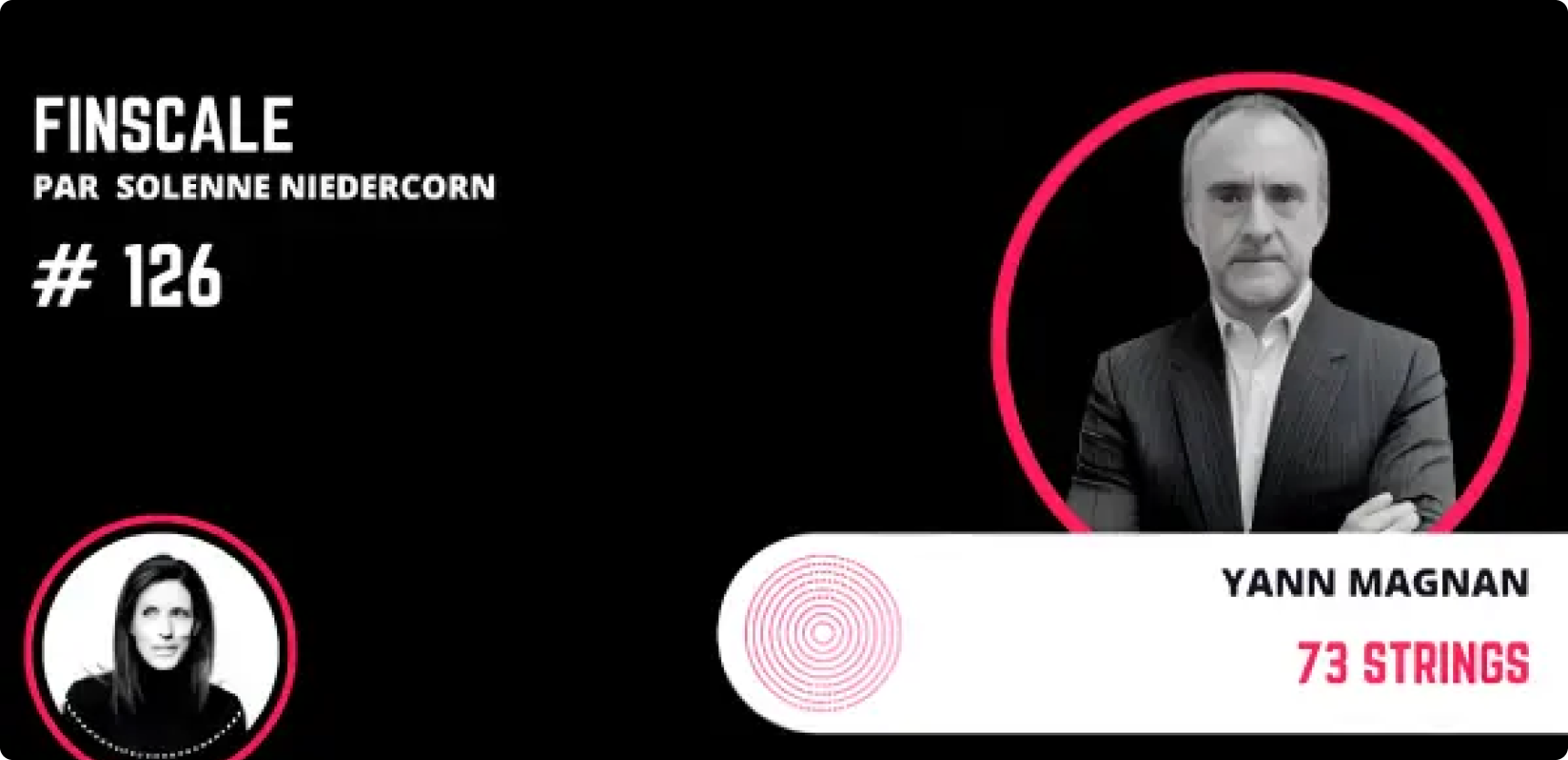Date
January 27, 2022
4 min read
Finscale Podcast: Yann Magnan is interviewed by Solenne Niedercorn-Desouche discussing technology’s key role in the valuation industry.

The founder of the Paris office of Duff & Phelps in 2007, where he would go on to become head of the EMEA region in 2016, Yann Magnan became CEO of 73 Strings in the middle of 2020. His new concern is a startup created by two former collegues at Duff & Phelps, Abhishek Pandey and Sambeet Parija. Its goal? To bring AI enhanced knowhow to the financial advisory and assessment sector. Yann outlined 73 String’s mission statement for Leaders League.
Leaders League. What’s the story behind the creation of 73 Strings?
Yann Magnan. In the corporate finance sphere, we are still in an environment where there is a high propensity to think that the big decisions and important tasks should be left to human beings, not a machine. The vision of Abhishek Pandey and Sambeet Parija is that, which I share, is to acknowledge that, while this essentially remains true in our industry when it comes to crucial decisions and judgements, to get to these in a more efficient, accurate way, there are an increasing number of tasks that can be offloaded to a computer.
The latest advances in AI and machine learning make it possible to automize tasks that, up to recently, had to be carried out manually. Here at 73 Strings, this philosophy informs our vision and is at the heart of every legaltech tool we develop.
Another thing worth bearing in mind is that, while technology has taken a giant leap forward, much progress has also been made in making this technology more affordable. Up until recently, if a company was serious about incorporating AI into their operating model, they would have had to bring in Google and pay hundreds of millions for the privilege. This is no longer the case.
Today there are a multitude of useful algorithms out there, just waiting to be harnessed by the right team with the necessary skills to match them and put them to work on any number of tasks. Operating in this way, there are significant time and cost saving to be made, especially when it comes to sorting through large amounts of data.
What is 73 Strings seeking to accomplish?
Our ambition is to set our young analysts free. Too often in the past, the best and brightest graduates spend those precious first handful of years of their career collecting, cross referencing and crunching information. These are important tasks, without which the company could not adequately function, without which the right investment decisions or valuations could not be made.
And yet, these are not tasks with a lot of added value, either for the company or the person carrying them out. They could quite easily be done by a machine instead, giving our analysts more time to deepen their analytical skills, hone their judgement and ponder more pertinent questions, and in doing so become more valuable assets to us and to themselves. By optimizing deal research and evaluation, 73 Strings gives young professionals that most valuable of commodities – time.
You have already developed two applications, the first, Proton X, designed to facilitate target identification and the second, Qubit X, a valuation tool. What new services are in the pipeline?
Our roadmap already has many elements in place, but it is still too soon to go into them in any great detail.
We are currently finalizing the features of Qubit X, an application that will make it possible for alternative investment funds to keep track of their investments.We are also working to boost our private equity coverage via Proton X. With Proton X, we intervene at the early stages of funds. Valuation tool Qubit X comes at the end, at the reporting stage. There are many tasks that come between these two stages that could benefit from our advanced, AI-enhanced approach. In addition, we intend to develop our Qubit valuation tool which, for the moment, only handles equity instruments. It is our ambition to apply it to private debt, infrastructure and real estate aspects.
Aside from the tools themselves, 73 Strings is seeking to branch out into the banking sector. At present we are concerned with providing products to address issues confronting investment funds and large corporates. The banking sector, we believe, has a lot to gain from the kinds of services 73 Strings currently offers and will offer in the future, such as credit-risk monitoring.
The name 73 Strings is intriguing. What’s its significance? Abhishek Pandey and Sambeet Parija, our two co-founders came up with the name. 73 is a prime number, the 21st, and one of the most complex from a mathmatical point of view. In computer science, strings denote sequences of characters or words. Therefore 73 Strings alludes to the modern alliance between words and figures.
To view the article click here